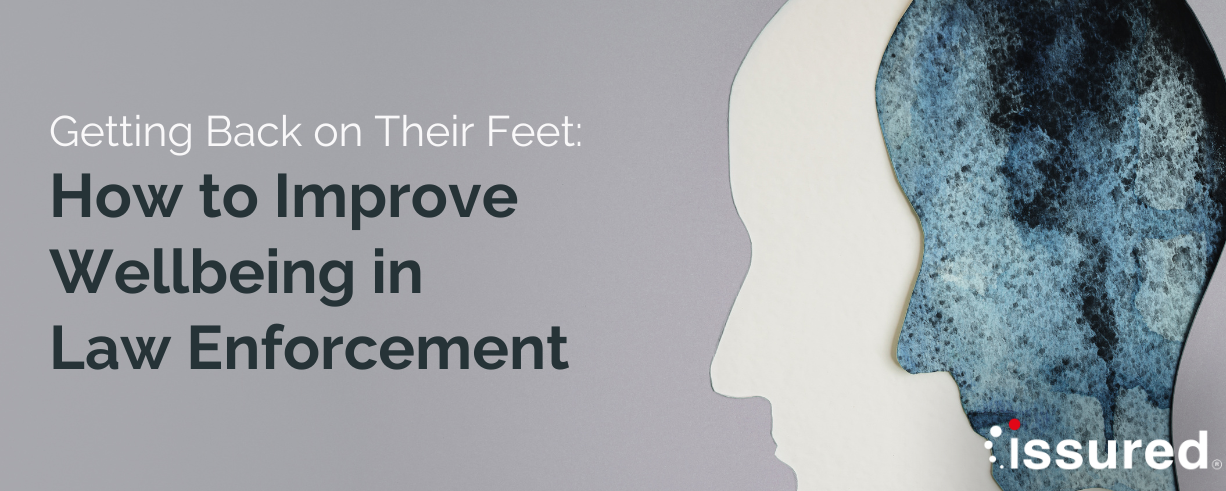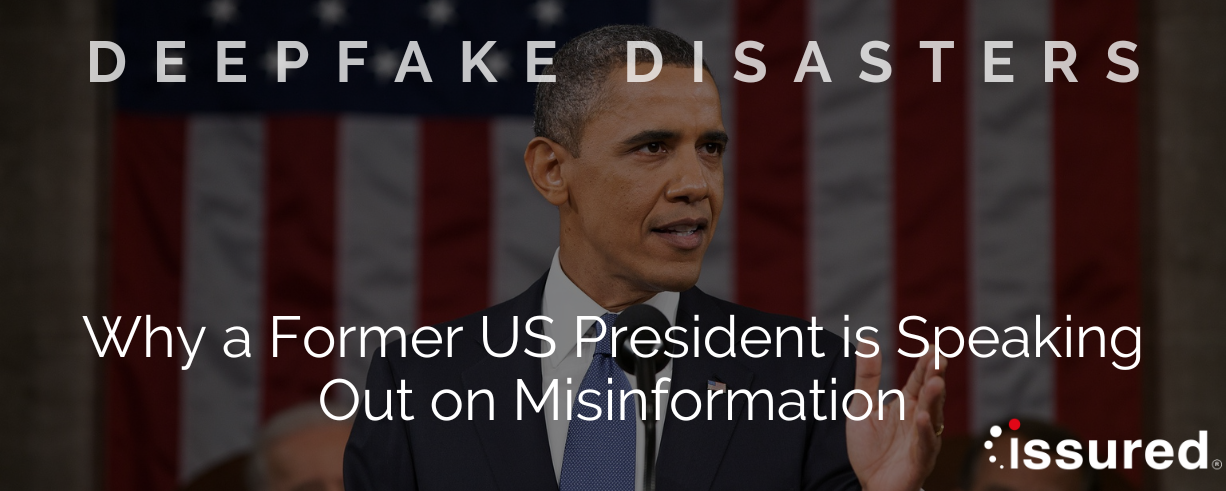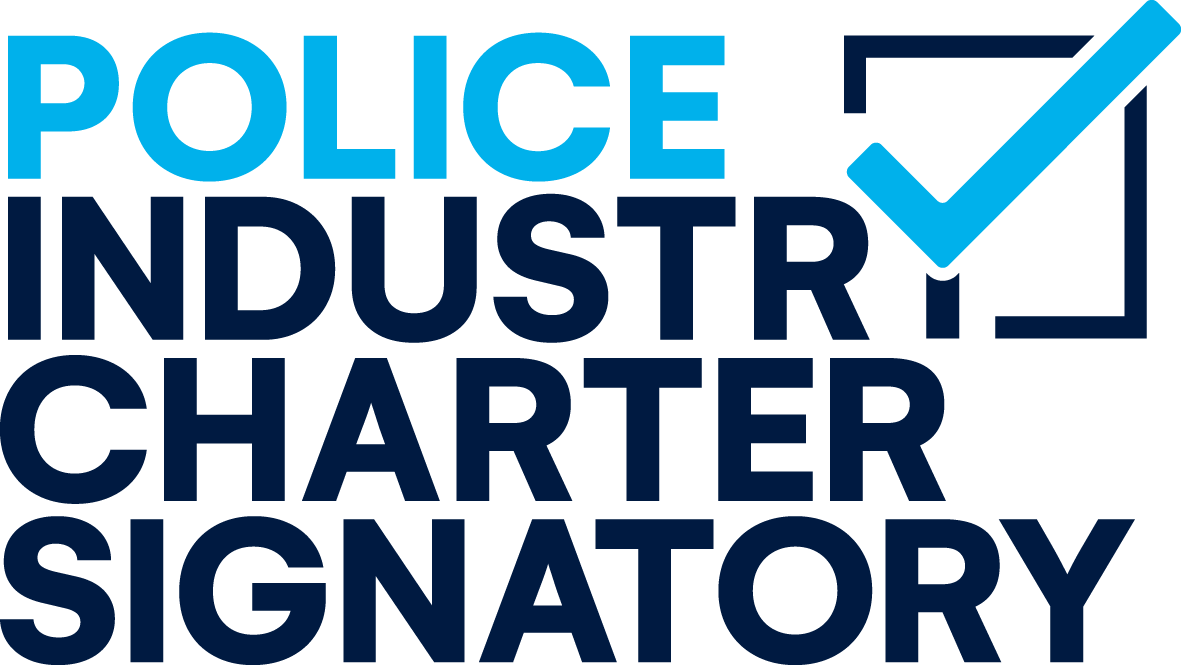
How to Improve Wellbeing in Law Enforcement
There is no effect without a cause, and it’s been expected for some time that with budget cuts and staff shortages in US law enforcement, prices will be paid for those left to pick up the pieces. If you have been reading our recent articles on police overtime and staff shortages, you will know that this has become a major issue across US Law Enforcement Agencies (LEAs), and whilst it’s important to bolster and support law enforcement at this time, the workload increase is starting to impact the wellbeing of officers and staff.
Year on year, awareness and support for mental health wellbeing is increasing, yet we are not seeing the same support for police officers. In a paper published in the National Library of Medicine, an investigation of 434 officers was carried out and found that, ‘12% had a lifetime mental health diagnosis and 26% reported current symptoms of mental illness. Of these officers, 17% had sought mental health care services in the past 12 months, but officers reported interest in help if a few key concerns were met, including confidentiality assurance.’
In this article we will uncover what LEAs are doing to support their staff, what the issues are and what else can be done to reduce the pressure on staff.
Initiatives to support law enforcement
A recent news story published by ABC News explores the latest New York Police Department (NYPD) scheme to boost morale and reduce resignations by offering flexible schedules. As stated in the article, ‘the flexible schedule comes amid a mass exodus of veteran officers.’
Keechant Sewell, NYC Police Commissioner, brought this plan to fruition to ensure staff receive adequate time with their families and a healthier work/life balance, without jeopardising public safety. The pilot program will see 400 officers take longer 10/12 hour shifts, with more days off in between.
In the May 2023 edition of the Police Chief Magazine, the theme of the month was officer health and wellbeing. This included poignant and insightful articles and case studies on methods of supporting wellness in Police Departments, and how they have implemented change.
One feature discusses the Dallas Police Department (DPD) introducing a Wellness Unit to support officer welfare. ‘Checkpoints’ were established to assess officers that witness potentially harmful experiences, including homicide, suicide or fatal crashes. These checkpoints are conducted by fellow officers, and consist of calls or meetings to provide support and a space to discuss the impact of dangerous encounters.
Why these initiatives are needed in law enforcement
In the case of NYPD, much like other departments, personnel are moving on to take other jobs for better pay and benefits in potentially safer communities. Thus leaving staff to carry the workload, leading to more hours in the form of overtime, on an already limited budget which doesn’t have the resources to fund overtime.
In regards to the Wellness Unit in the DPD, group sessions were conducted to understand the wellbeing of staff and if they felt enough support was readily available. In the article the findings state, ‘some officers expressed bottled-up frustrations due to a lack of support in the past, and other employees voiced concerns about previous inadequate efforts to help officers heal or the historical difficulty of understanding the burdens carried by police officers.’
What else can be done?
As we look at the future of law enforcement and ensure that wellness is, and continues to be, a top priority, one way to help reduce the demand on an officer or agent and increase morale is through utilising secure remote video interview technology.
By using an online virtual interview platform, officers and staff can take witness, victim and voluntary suspect interviews without having to travel to physical locations, saving everyone time and increasing capacity to better manage high demand. Mea: Connexus can also be used to communicate internally in LEAs, providing another method of secure and private communication which could be used for health and wellness checks on a highly confidential platform.
Mea: Connexus is a secure, tamper evident remote video platform designed specifically for investigations and important meetings. Hosted on Microsoft’s Azure Government cloud, you can easily send invites to participants without the need to download any software or install any hardware.
Time is of the essence in law enforcement, so we have listed some other time-saving features, ensuring staff and officers spend their shifts protecting and serving their communities, as well as themselves.
Time and money saving features include:
- Bookmarking and annotation of key points during or after the meeting.
- Case management, collaboration and transfer of interview content.
- Recording of interviews which can be viewed online or downloaded for offline viewing or sharing.
- Automatic transcription of the meeting, including timestamps, what was said and who said it.
- Inviting silent observers from other parts of the state or country to provide discreet input into interviews or meetings.
- Audio only links for participants who want to communicate more privately and discreetly by imitating phone use.
Invest in the wellness of officers today with Mea: Connexus. Learn more about the meeting platform on our website, book a demonstration for your agency or department and read more about the other great benefits of Mea: Connexus in our brochure.
Check out our previous law enforcement articles here:
Recent Posts
It can be quite overwhelming seeing the vast array of CMI Level 5 leadership and management awards, so the Issured [...]
Barack Obama is one of the most photographed humans alive on Earth, and although this level of publicity is to [...]
With the introduction of ChatGPT in November 2022 and the rapid progression in machine learning and AI technology, it’s no [...]














